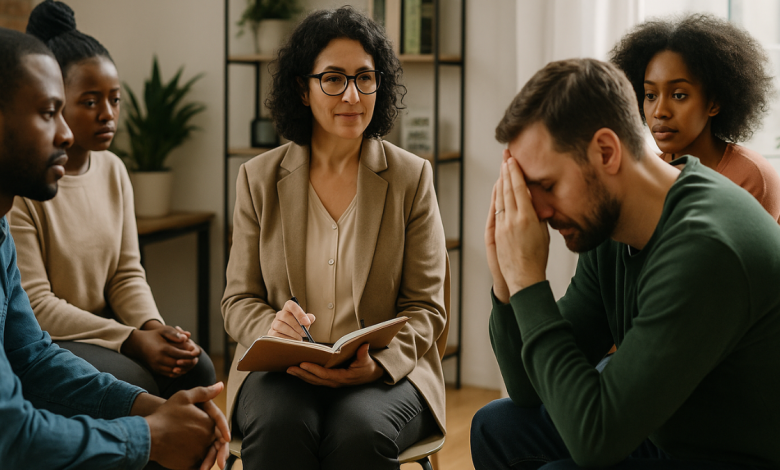Government and NGO Initiatives to Combat Gambling Harm

South Africa has one of the most regulated gambling industries on the African continent. While gambling contributes significantly to the national economy, generating billions in annual revenue, it also comes with a darker side: gambling harm. This term encompasses a range of negative effects, including addiction, financial ruin, broken families, and deteriorating mental health. In response to these growing concerns, both government bodies and non-governmental organisations (NGOs) have initiated various programs to mitigate gambling harm and protect vulnerable communities.
ALSO READ: How Employers in Gauteng Are Addressing Gambling Addiction in the Workplace
Understanding Gambling Harm in South Africa
Gambling harm refers to the adverse consequences that arise from excessive or irresponsible gambling. According to the National Gambling Board (NGB), approximately 3% to 5% of the South African population suffers from problem gambling. This issue disproportionately affects low-income households and youth, often exacerbating poverty and social inequality.
Key signs of gambling harm include:
- Increased debt and financial stress
- Deceptive or secretive behaviour
- Declining mental health and emotional distress
- Neglect of work, studies, or family responsibilities
- Legal issues related to fraud or theft to fund gambling
The consequences of gambling addiction extend beyond individuals; they ripple through families, workplaces, and entire communities.
Government Initiatives to Tackle Gambling Harm
1. National Gambling Policy and Regulation
The South African government has implemented strict gambling legislation through the National Gambling Act (2004). This act established the National Gambling Board (NGB), which regulates all forms of legal gambling across the country. Its key responsibilities include monitoring gambling trends, enforcing compliance, and issuing licenses.
In addition, the Department of Trade, Industry and Competition (the dtic) oversees gambling policy to ensure that operators follow ethical business practices and prioritise player protection.
2. Self-Exclusion Programs
The NGB supports a self-exclusion program that allows individuals struggling with gambling addiction to voluntarily exclude themselves from licensed gambling facilities. According to the Gauteng Gambling Board, the self-exclusion list is shared across all registered venues, ensuring that at-risk individuals cannot easily bypass the system.
3. Public Awareness Campaigns
Government departments regularly run public education initiatives to raise awareness about responsible gambling. These campaigns often include:
- Posters and flyers at betting outlets
- Radio and TV advertisements
- Social media campaigns promoting responsible gambling hotlines
A notable example is the “Know Your Limits” campaign launched by the Western Cape Gambling and Racing Board, aimed at helping people recognise early signs of gambling addiction.
4. Research and Data Collection
Government bodies fund academic and market research into gambling trends and their social impacts. The National Responsible Gambling Programme (NRGP) collaborates with institutions to gather data on gambling behaviour and evaluate the effectiveness of interventions.
NGO and Civil Society Contributions
1. South African Responsible Gambling Foundation (SARGF)
Perhaps the most prominent NGO in this space, the South African Responsible Gambling Foundation (SARGF), was established in 2000. It operates the National Responsible Gambling Programme (NRGP), which provides:
- Free counselling and treatment for problem gamblers
- A 24-hour toll-free helpline (0800 006 008)
- Prevention and education campaigns
- Training for gambling industry staff on identifying and assisting at-risk individuals
The SARGF adopts a public health approach, emphasising prevention, early intervention, and rehabilitation.
2. Gamblers Anonymous South Africa (GA-SA)
Modelled on the Alcoholics Anonymous model, Gamblers Anonymous offers peer support and group meetings for those recovering from gambling addiction. These meetings are confidential and free, encouraging open sharing and accountability in a supportive environment.
3. Lifeline South Africa
While not exclusively focused on gambling harm, Lifeline SA provides trauma counselling and emotional support to individuals and families affected by gambling addiction. The organisation works closely with local communities and schools, promoting mental well-being and emotional resilience.
4. Youth-Focused NGOs
Organisations like LoveLife and Childline South Africa have integrated gambling harm education into their youth engagement programs. These include workshops in schools, life skills training, and online resources to help young people avoid risky behaviour, including underage gambling.
Digital Tools and Online Support
In an increasingly digital world, many support programs have expanded their reach through mobile and online platforms. For example:
- The NRGP offers free online self-assessment tools.
- Gamblers Anonymous lists virtual meeting rooms.
- WhatsApp and text-based counselling services are available for those unable to attend in-person sessions.
These tools ensure accessibility, particularly for individuals in remote areas or those who feel stigma around seeking help.
Challenges in Combating Gambling Harm
Despite these initiatives, several challenges remain:
- The proliferation of illegal gambling, including unlicensed online platforms, makes regulation difficult.
- Stigma around gambling addiction prevents many from seeking help.
- Limited funding for NGOs restricts the scale of their outreach and treatment programs.
- There is a need for stronger collaboration between public and private sectors to tackle systemic issues.
Looking Ahead: The Way Forward
To build on current successes, experts recommend:
- Expanding self-exclusion systems to cover online gambling
- Introducing school-based gambling awareness curriculums
- Increasing funding to support mental health services
- Collaborating with financial institutions to help individuals manage debt related to gambling
- Strengthening cross-border regulation to limit illegal online betting platforms
Ultimately, the fight against gambling harm requires a unified, multi-sector approach. By integrating legislation, education, and treatment, South Africa can work towards a more responsible and ethical gambling environment.
READ MORE: Preventing Youth Gambling Addiction: What Schools and Parents Can Do
Gambling harm is a serious public health issue in South Africa, but not an insurmountable one. Government and NGO initiatives, such as those run by the NGB and SARGF, play a vital role in prevention, education, and recovery. However, lasting change will require continued vigilance, public participation, and policy innovation.
For those seeking support, help is available. Contact the NRGP toll-free helpline at 0800 006 008, or visit www.responsiblegambling.org.za to find resources and assistance.



